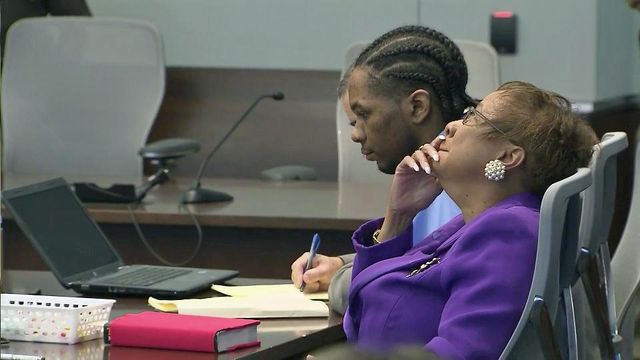Lovette acquitted in Duke grad student's shooting death
A jury in Durham found Laurence Alvin Lovette Jr. not guilty of first-degree murder in the death of Duke University graduate student Abhijit Mahato, who was found shot in the head inside his apartment more than six years ago.
Posted — UpdatedThe jury of 10 women and two men deliberated nearly eight hours before reaching its verdicts in the two-week trial of Laurence Alvin Lovette Jr., 23, who was charged with first-degree murder and robbery with a firearm in the Jan. 18, 2008, death of Abhijit Mahato.
Prosecutors said Mahato was the victim of an "intentional, deliberate and premeditated murder" in which Lovette targeted the 29-year-old from Tatangar, India, robbed him of hundreds of dollars from his savings account and then shot him once in the head inside his Durham apartment.
"We are all shell-shocked," close friend Samarpan Majumder said Wednesday afternoon. "We have been hoping that some justice will ultimately come out."
"If Lovette did not kill him, who killed him?" his wife, Rinku Majumder, said. "I lost my respect in the judicial system."
Mahato's parents in India called their son's death "a diabolical crime" that left them wondering "what sins must we have committed to receive such a punishment."
Mahato had moved to U.S. in the summer of 2006 and was in his second year of graduate studies for computational mechanics at Duke's Pratt School of Engineering. He was working on tire-safety research and also preparing to take his Ph.D. qualifying exams.
"He was by nature an outgoing person and could make friends easily. His friends loved his easy going personality and found him to be very warm and affable," his parents wrote.
He loved poetry and photography and life to its fullest, and friends described him as brilliant and believed he could have someday had a big impact on the world.
"We lost a great person who would have done so much for so many people," Rinku Majumder said. "He died, and there is no justice for him now? After seven years, how can I explain this to his parents?"
Prosecutors agreed.
"(Abhijit Mahato) had a vision for his future, and he was working toward it – a career, a family down the road," Durham County Assistant District Attorney Jim Dornfried told jurors. "He saw a future and was trying to make it happen, but he didn't see just how that future would be stolen from him, ripped from him."
Lovette was convicted of Carson's death in December 2011.
But defense attorneys argued there was no solid evidence – DNA, fingerprints or eyewitnesses – linking Lovette to Mahato's death and that the state's case rested on the testimony of one woman who was not a credible witness.
Lovette's attorney, Karen Bethea-Shields, credited Wednesday's verdicts to both God and a justice system that works as it should.
"The family of Mr. Mahato, and his friends, want the persons who did this to pay for what they did to Mr. Mahato," she said. "We don't look at this as a victory – like a sporting event – because this is a person's life that was taken. We look at it as a victory, in that God has used us to prove that, in fact, he was not guilty."
Dornfried said that, although the state is disappointed, it accepts the jury's decision.
"We worked with what we were given," he said. "Obviously, the defense pointed out certain deficiencies. I would leave that to the police department to explain why those deficiencies existed."
But the investigation in Mahato's death is not over.
"The question is not, from my standpoint, what I believe but rather what I can prove. I know there are questions regarding Mr. Maybrey," Dornfried said. "We are still discussing this case."
• Credits
Copyright 2024 by Capitol Broadcasting Company. All rights reserved. This material may not be published, broadcast, rewritten or redistributed.






